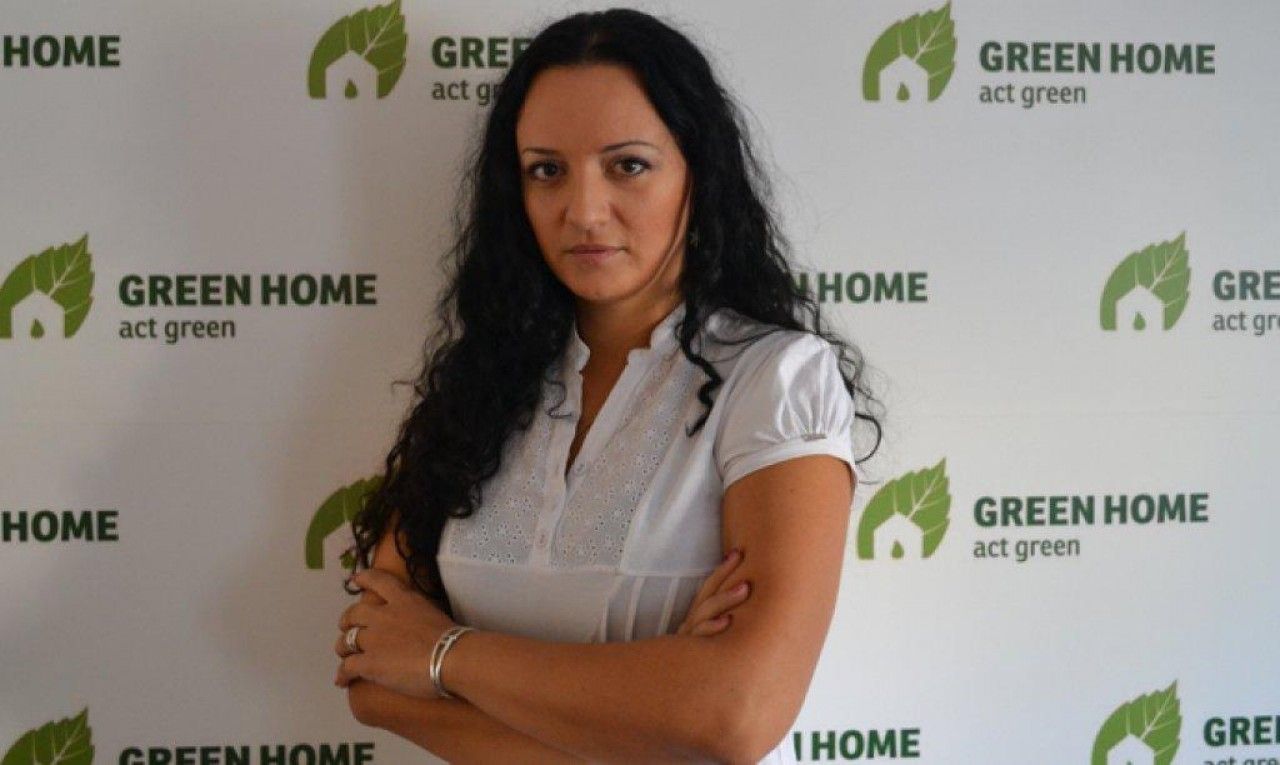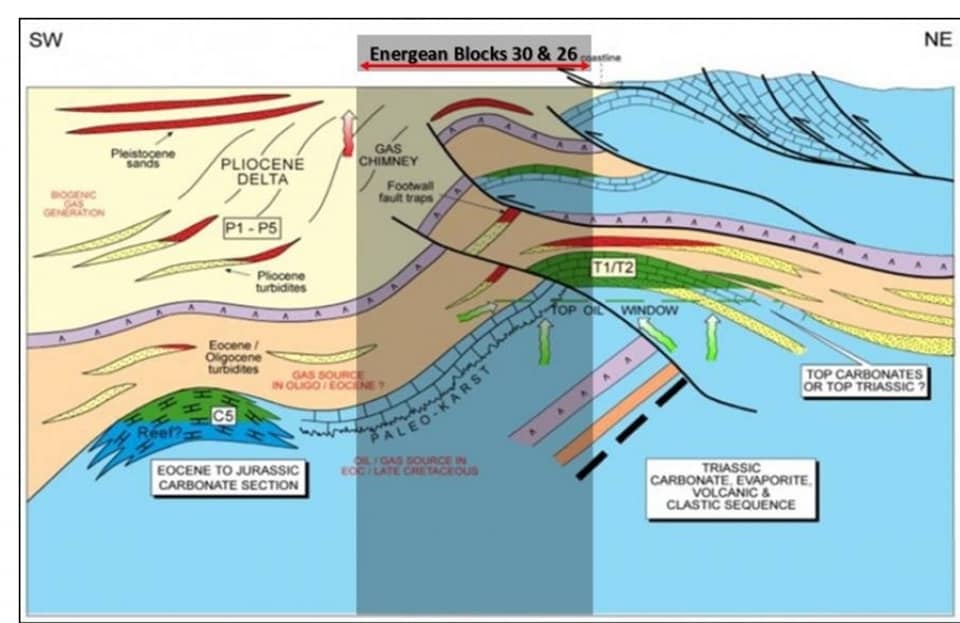The embarkation of the first ENI’s seismic vessel in the territorial waters of Montenegro was announced for 1 November. NGO Green Home, which previously led activities aimed at informing citizens about the possible consequences of the decision of the Government of Montenegro to permit the investigation and possible exploitation of fossil fuels from the Montenegrin submarine, now invites citizens to join the process of monitoring investigation effects on the marine ecosystem.
Even the testing of potential fossil fuels can lead to a whole series of ecological incidents, as well as induced earthquakes, since the test blocks are in a very cramped area, claims Nataša Kovačević from Green Home.
"It is a surprise to all of us that on November 1, a ship that is carrying sound cannons for exploration of hydrocarbons - oil and gas in our underwater, is coming. Neither the public nor the institutions are certain what this will cause in our small, sealed sea, which is important also from the aspect of tourism development, and from the aspect of fisheries, but certainly to the marine biodiversity and ecosystem," Kovačević said.
 "We do not have enough data about what is in our sea and what potential values it carries with us, which is why we will not have a clear play, if it comes to the consequences, of what we will actually lose. What is shown by international practice is that, when it comes to fisheries, there will certainly be great consequences. Explanation works, sound canisters that are emitted every ten minutes from the main boat to the sound mirrors, which are on ropes at a distance of seven or more kilometers, produce sound pollution of 250-260 dB, which causes damage to the sea mud, mechanical damage to the sound appliances, and balance disorders. This kind of pollution destroys whole flocks of fish. It affects the ecosystem of food chains in animals, and consequently in humans."
"We do not have enough data about what is in our sea and what potential values it carries with us, which is why we will not have a clear play, if it comes to the consequences, of what we will actually lose. What is shown by international practice is that, when it comes to fisheries, there will certainly be great consequences. Explanation works, sound canisters that are emitted every ten minutes from the main boat to the sound mirrors, which are on ropes at a distance of seven or more kilometers, produce sound pollution of 250-260 dB, which causes damage to the sea mud, mechanical damage to the sound appliances, and balance disorders. This kind of pollution destroys whole flocks of fish. It affects the ecosystem of food chains in animals, and consequently in humans."
Earlier, before the final decision on providing concessions was made, Green Home pointed to the many risks of entering into such a project. However, all this information and experience of other countries was not enough for our decision makers not to permit test in the ecological state of Montenegro and the possible exploitation of fossil fuels. Also, the competent institutions have failed to provide information to citizens on all possible risks.
“It is believed that the economic gain maybe this or that. All these analyzes are not adequate, they are not done in the proper way for the simple reason that we do not know what the quantities of oil are. Among other things, little was said about seismological influences. We know this area is tricky. The sound cannon itself and the work of a seismological ship can lead to induced earthquakes. These are the phenomena that are not unknown to other countries, such as Norway and all the other countries that have been investigating oil and gas in the sea. No economic research has been done properly; we do not know how it will affect our tourism. It will be evident until the sediment has been lifted, so that our Wild Beauty slogan will fall into the seawater, which will no longer be crystal clear, at least for a period of time," Nataša Kovačević said.
Kovačević considers it unmistakable that in a country that lives from tourism, we enter the projects that can cause a whole series of ecological effects that could adversely affect the interest of visiting and staying on the Montenegrin coast, which now attracts the guests most to the natural beauty and the clean sea.
 "Citizens were not generally asked when deciding whether to go into oil and gas exploration. For 27 years we have been trying to become an ecological state, to work on the slogan of Wild Beauty, to develop tourism, which has been quite successful. 90 percent of the overnight stays are realized on the Montenegrin coast, and about 30 percent of the GDP revenue is generated by tourism, which is why it represents the main economic branch currently occupied by Montenegro. Now we are doing something diametrically opposed. If it turns out that there is some amount of oil or gas, something we do not know at the moment, oil platforms will be installed. I leave myself - I would never love to swim near the oil platforms.”
"Citizens were not generally asked when deciding whether to go into oil and gas exploration. For 27 years we have been trying to become an ecological state, to work on the slogan of Wild Beauty, to develop tourism, which has been quite successful. 90 percent of the overnight stays are realized on the Montenegrin coast, and about 30 percent of the GDP revenue is generated by tourism, which is why it represents the main economic branch currently occupied by Montenegro. Now we are doing something diametrically opposed. If it turns out that there is some amount of oil or gas, something we do not know at the moment, oil platforms will be installed. I leave myself - I would never love to swim near the oil platforms.”
“And without major hazards, just because of underwater exploration, and the possible installation and use of petroleum platforms, releases in the sea various toxic chemical compounds, spills, radioactive materials. Despite all the precautions, only a part of this material can be collected, while small debris, harmful and radioactive gases will certainly be released into the sea”. Kovačević believes that we are entering a very risky process without having the capacity to control them. "It is a complicated technological process that we have not worked so far. How are we going to control it? With what equipment? Which human capacities? In the situation of an accident, what will happen next? By the contract, these are questions that are the responsibility of the investor. But look at any area where environmental incidents have occurred due to fossil fuels such as the Gulf Bay or the Niger Delta - you can see that the environmental damage that has occurred there has never been remedied in an adequate manner. The coasts did not revive again, nor have the ecosystems come back to their previous state. In fact, this did not happen in the right way anywhere."
Montenegro's entry into such projects is a tough picture of how much our country's development is planned or not planned on a sustainable basis. One of the solutions to the compatibility of this orientation with tourism, as a basic economic branch, has been offered by the Ministry of Economy for the visual impact of eventual installing of oil platforms only 3 km from the coast, and that the platforms can be decorated with colorful lights and as such represent a kind of tourist attraction. "The whole study of strategic environmental and other developmental impact assessments was done with equal negligence. Large space is given to populist and small details, which could be around to calm a citizen. However, it is clear to the average informed citizen that Montenegro has not gained such experience, expertise, and capacities so that we can work on oil and gas. We do not know what that really means for our country. There are other economic branches that, as they are, are trying to cooperate in some other direction. This is certainly a project that will, if anything goes wrong, have a significant negative impact on all local communities in the coastal area."
They are leading negotiations with the fishermen's associations, where they are offered compensation for damages. The investor admits that the research itself is expected to have a negative impact on the fish stock. They offer them a monthly fee of 250 Euros for lost fishing profits, which the fishermen, considering it too little, disagree with.
For oil platforms that will eventually be installed in Montenegrin territorial waters, the minimum distance from the coast is defined at 3 km. This would not be the first system for the exploitation of fossil fuels in the Adriatic Sea. Nataša Kovačević explains: "What we need to understand is that all these platforms have been installed in the 1970s. The latest fossil fuel research in the Adriatic was carried out in 2003. It is not being done anymore, because there is a general mission of Europe and the world to go to reduce the use of fossil fuels so that by 2050, the complete abolition will be achieved. Regardless that we are signatories to the famous Paris Agreement, we are now entering a completely new fossil fuel exploitation project. It speaks of our seriousness and dedication to international trends, world standards, commitments we have taken in the fight against climate change and all the negative phenomena, such as the effect of glass gardens on the use of fossil fuels. Apart from being indifferent to the international community, we are irresponsible to everything that has developed in the region so far. We are irresponsible in ourselves. If the ecological state is tied to sustainable tourism, organic agriculture, green energy, how have we come to oil platforms and other mega infrastructure solutions that are in contrary to sustainable development?"
Essentially, the investigations planned from 1 November cannot be prevented, but we may, based on the consequences that emerge during these activities, prevent future investigations and the possible placing of oil platforms, said Green Home.
 "In essence, it would be good if we could prevent the entry of the seismological vessel itself. Perhaps fishermen and other associations with vessels could join and do something about that. Unfortunately, my experience has taught me that we, as citizens, have always learned more from the consequences that have already been made. We are the same as a state, but especially as citizens. You see an example of small hydroelectric power plants - several of them have been made and only when we have seen the negative consequences, the citizens have stood in defense of their own river, their resources. I have the impression that something like this could happen with this project. If a cycle of research lasts for 30 days, when citizens see how it affects them and their lives, we believe that they will also stand in defense of natural resources. But it is certain that for some species, for fish stocks, for one part of biodiversity it will be late. We are trying to preach that, and not come to the situation to learn about the consequences, but I'm afraid we're in this situation too late."
"In essence, it would be good if we could prevent the entry of the seismological vessel itself. Perhaps fishermen and other associations with vessels could join and do something about that. Unfortunately, my experience has taught me that we, as citizens, have always learned more from the consequences that have already been made. We are the same as a state, but especially as citizens. You see an example of small hydroelectric power plants - several of them have been made and only when we have seen the negative consequences, the citizens have stood in defense of their own river, their resources. I have the impression that something like this could happen with this project. If a cycle of research lasts for 30 days, when citizens see how it affects them and their lives, we believe that they will also stand in defense of natural resources. But it is certain that for some species, for fish stocks, for one part of biodiversity it will be late. We are trying to preach that, and not come to the situation to learn about the consequences, but I'm afraid we're in this situation too late."
That is why they call on the citizens to try to collect enough information on whether and how many species died, what happened to the sediments, whether there were fewer fisheries in those days, all that would be relevant to make the first analysis of the consequences of such activities in our sea. "We can only hope that there will be no risk, but it is difficult for the control mechanisms, which are very poor and general, to help. We can hope that there will be no earthquakes induced by those activities. There are also numerous other risks, from regular balls used over ballast water, the transport of discarded, toxic and radioactive materials arising from the radon release process. We cannot control this. When I say “we”, I mean public institutions. This is something left by the contract to the investor. But in reality, what interests us most is the consequences that will hurt us," Natasa reminds us of the fact that large capital is kept on the conscience to take care of the future of our children.
"We understand that the state is unprepared, we understand that there is no capacity. But, we do not understand that in such a situation and without valid core data this resource is provided for use. These are, however, our common good as the generations to come are our common children. We need to leave them the sea and rivers and all other natural resources as we have found them. For this project, I believe that in the very near future it will be a great shame for Montenegro and all those who gave it green light," concluded Kovačević.








